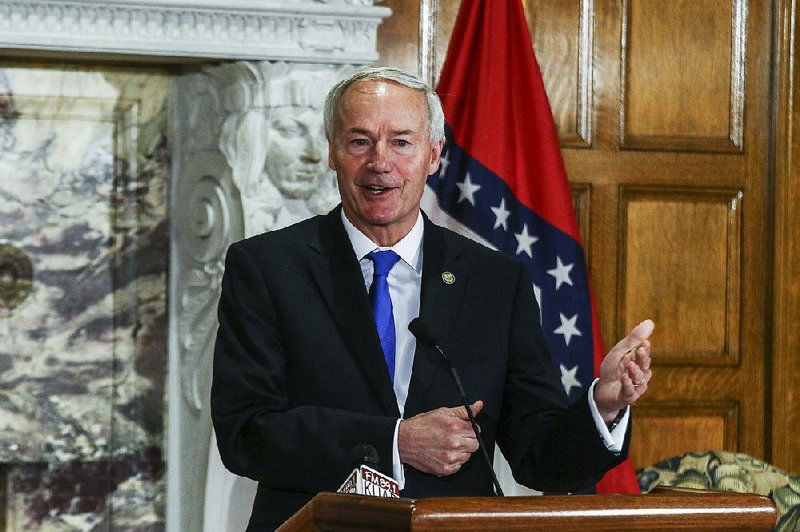PROVIDENCE, R.I. — U.S. governors responded largely along partisan lines Thursday to the latest Republican health care overhaul, although the plan's long-term rollback in Medicaid funding remains a concern among many from both parties.
The measure released by Senate Republican leader Mitch McConnell retains cuts to the state-federal insurance program for the poor, disabled and nursing home patients.
Many governors have said they want Congress to protect people who gained coverage through the expansion of Medicaid that was allowed under former President Barack Obama's Affordable Care Act. Some 11 million Americans in 31 states have benefited from expanded Medicaid.
Republican Gov. Asa Hutchinson of Arkansas said he likes that the latest bill would provide more funding to help low-income people move off Medicaid and into the private market. But he remains concerned about Congress shifting costs to the states to maintain the same level of Medicaid coverage they have committed to.
Arkansas is among the states that expanded the program under the Obama-era law.
"I'm delighted with the significant amount of time devoted to this, with the Senate trying to get it right and not just pass something," Hutchinson said.
Virginia Gov. Terry McAuliffe, a Democrat, was more critical.
"The president promised us that everybody was going to get coverage, it would cost less and we'd get better results," said McAuliffe, who is chairman of the National Governors Association, which is meeting this week in Providence "This plan that they just put out doesn't do any of that."
Lower-income people who don't qualify for the program often go uninsured, showing up at emergency rooms for urgent treatment. Those costs often get passed along to the state.
Connecticut Gov. Dannel P. Malloy, a Democrat, said Republicans in Congress want to "kill health care" by phasing out the federal subsidy used to expand Medicaid and by ending protections for pre-existing conditions.
Republicans attending the summer gathering were more receptive.
GOP Gov. Matt Bevin of Kentucky said the new bill represents progress over an earlier version in the Senate and one that previously passed the House. He said it puts more emphasis on state control and flexibility to design health care programs.
"What we have is broken," he said. "Give the states the control and the flexibility and we'll take care of the problem. We can produce healthier outcomes."
Bevin has been a strident opponent of the Affordable Care Act, calling it an "unmitigated disaster" in Kentucky because of higher premiums for some consumers and increased costs for taxpayers. Yet Kentucky has been one of the states to benefit most from the federal health care law, thanks mostly to expanded Medicaid that was pushed by the previous governor, a Democrat.
Under the expansion, 400,000 Kentucky residents gained medical coverage, helping the state's uninsured rate fall from 20 percent to 7.5 percent in just two years.
Bevin has proposed several changes to the state's expanded Medicaid program that, if approved by the federal government, would cause some 86,000 people to lose coverage within five years.
A governors-only session Friday will give governors a chance to ask questions of U.S. Health and Human Services Secretary Tom Price and Seema Verma, the administrator of the federal Centers for Medicare and Medicaid Services.
Vice President Mike Pence and Canadian Prime Minister Justin Trudeau also are expected to address the gathering that day.
